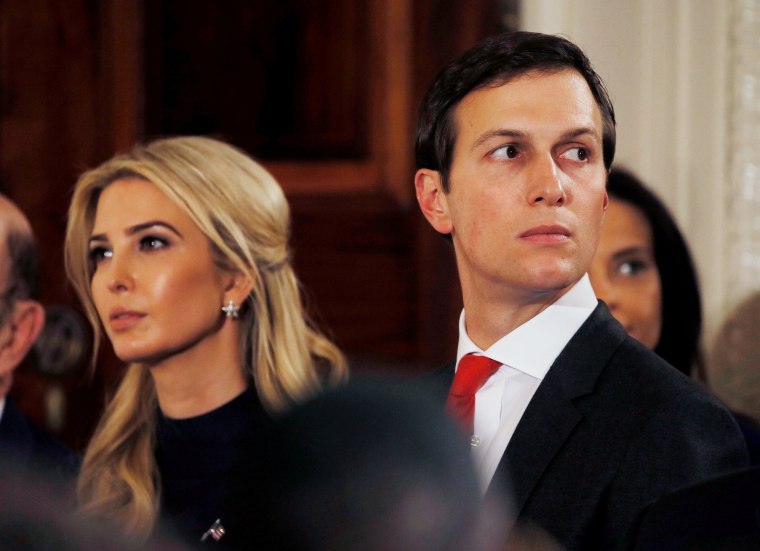It's seems like ages ago, but ahead of the 2016 election, Americans were told that one of the most pressing issues facing the nation -- if not the most pressing -- was Hillary Clinton's handling of sensitive information. Coverage of the former secretary of State's emails received more front-page coverage in the run-up to the last presidential election than every other issue combined.
We still occasionally hear from political observers who are willing to defend this dynamic, insisting that the White House is responsible for dealing with the nation's most sensitive secrets. Anyone who's been careless with shielding classified information, the argument goes, should necessarily be deemed suspect in Americans' eyes.
Considering the scope of the controversy surrounding the Trump White House's handling of security clearances, there is a degree of irony to the circumstances. Did you catch Rachel's segment last night on this new report from NBC News?
Jared Kushner's application for a top-secret clearance was rejected by two career White House security specialists after an FBI background check raised concerns about potential foreign influence on him -- but their supervisor overruled the recommendation and approved the clearance, two sources familiar with the matter told NBC News.The official, Carl Kline, is a former Pentagon employee who was installed as director of the personnel security office in the Executive Office of the President in May 2017. Kushner's was one of at least 30 cases in which Kline overruled career security experts and approved a top-secret clearance for incoming Trump officials despite unfavorable information, the two sources said. They said the number of rejections that were overruled was unprecedented -- it had happened only once in the three years preceding Kline's arrival.
Part of what makes the story amazing is the Kushner angle. Career officials decided the president's son-in-law shouldn't have access to the nation's most sensitive secrets, but a White House official ignored the independent assessments and approved Kushner's clearance anyway.
But it was that "at least 30 cases" phrase that stood out for me.
We appear to have a policy dynamic in which career experts on security clearances are almost never overruled -- except in the Trump White House, where it's happened repeatedly.
As Rachel put it on the show, at issue is a White House that has effectively been subverting the whole security clearance system so that people who would otherwise be rejected for clearances end up with access to secrets anyway.
This happened for the president's son-in-law, which is problematic, but the fact that it's happened "at least 30" times is extraordinary.
If a story along these lines broke in 2017 or 2018, many would look to Congress to conduct some oversight in an area like this, only to be told Republican-led committees don't believe in scrutinizing a White House led by a Republican president.
But it's neither 2017 nor 2018 anymore, and House Oversight Committee Chairman Elijah Cummings (D-Md.) has already vowed to examine this White House's approach to security clearances.
Given the available information, if officials in the West Wing aren't concerned about this scrutiny, they should be.
Postscript: Daniel Jacobson, who has experience working on security clearance issues in the Obama White House, had a fascinating Twitter thread on the latest revelations, but there was one point in particular that struck me as especially notable.
"It takes some pretty bad stuff to be denied a clearance," Jacobson wrote. "The fact that there have been 30 denial recommendations of [White House] staff in the last 1.5 years is itself crazy, before you even get to the overruling part."
Right. There's a legitimate controversy over the fact that career officials were ignored when they recommended a denial of security clearances for so many White House aides, but the forest is as important as the trees: why exactly were "at least 30" officials on Team Trump deemed unworthy of a clearance?
